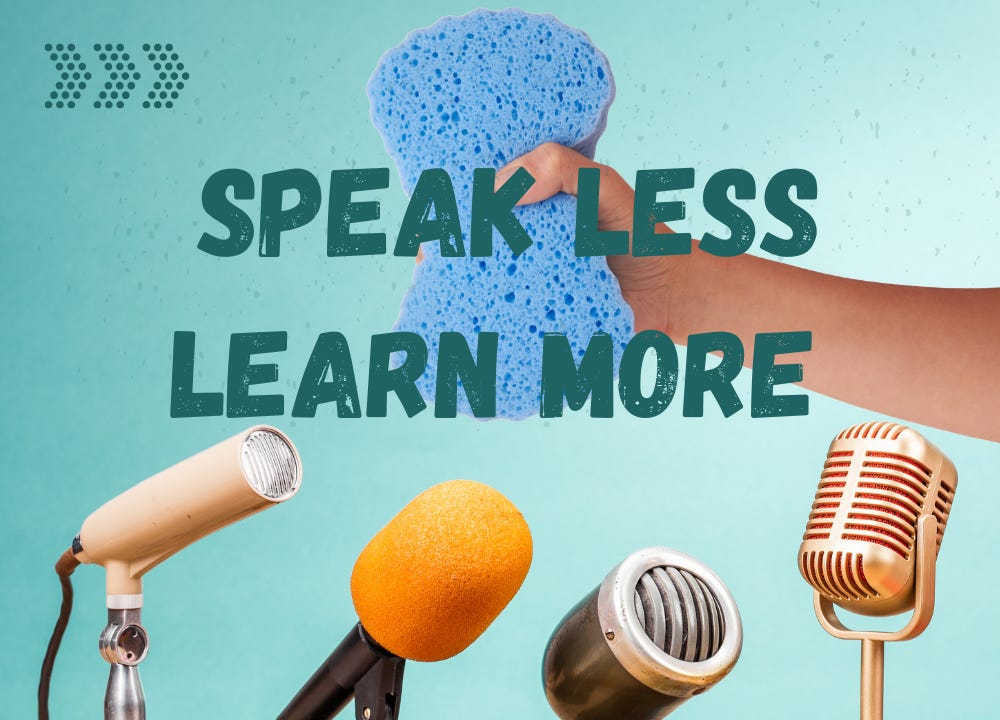How to Be Socially Awkward and Still Be a Great Communicator
The Quiet Guide to Communication and Influence
Let's face it: most of us have felt it. That moment in a meeting where everyone is sharing ideas and you have a great one, but the words just won't come out. Or the dreaded office party where you feel more like a human piece of furniture than a colleague. The truth is, many of us, especially in a professional setting, feel a little socially awkward at times. We're not "on" all the time, and that's okay.
The prevailing wisdom is that to be influential and well-connected, you have to be charismatic—a brilliant conversationalist, a master networker. But what if that's a lie?
Success isn't about the natural talent you're born with, but about the skills you develop along the way. For those of us who feel a bit out of our element in social settings, reframing how we connect and are heard can be powerful. The secret isn’t about becoming a charming extrovert; it’s about becoming a better learner.
From Awkward to Insightful: The "Sponge Mindset"
Instead of trying to win a conversation, what if you approached it as a learning opportunity? This is the "sponge mindset." Think about it: a sponge doesn't try to be clever or entertaining; it simply absorbs.
For a socially awkward person, this is a superpower. You don’t have to worry about having the perfect response or telling a brilliant story. Your new mission is to listen.
This applies to professional settings as well as to personal ones. At your next team meeting, instead of stressing over your own contribution, focus on truly listening to what your colleagues are saying. Ask thoughtful, clarifying questions, like, “Could you tell me more about how you see that working?” or “What’s the biggest challenge you foresee with that approach?”
You’ll find that people are often more impressed by someone who makes them feel heard than by someone who dominates the conversation. This simple shift from performer to learner can change everything. You go from being the person who can't think of anything to say to the person who everyone trusts with their ideas.
The Power of Asking Advice, Not Feedback
Have you ever left a meeting and asked a colleague, "How did that go?" It’s a terrifying question because it’s a request for feedback, which can feel like a direct judgment of your performance.
Next time, try a more effective alternative: asking for advice.
There's a subtle but significant difference. Feedback focuses on the past ("You spoke too fast"). Advice is about the future ("For the next time, what's one thing you would recommend I do to improve my pacing?"). When you ask for advice, you’re not asking to be judged; you're asking for help. This disarms the other person and makes them feel valued for their expertise. It also gives you a clear, actionable path forward, turning a moment of potential anxiety into a concrete step for growth.
Try it at your next one-on-one with your manager or a trusted colleague. The question "How can I improve my communication skills?" is far less intimidating than "How did I do?"
This approach works just as well with friends and family. Instead of asking a friend, "Was I weird at that party?", you can ask, "I want to get better at meeting new people. What’s one tip you have for me?" You'll get a more helpful response and strengthen your bond by showing a desire to grow.
Redefining Your "Network"
Many of us see networking as an arduous task—a series of stilted, forced conversations with strangers. But you can redefine what networking means for you.
Your network isn’t about the number of people you know; it’s about the quality of connections you have. Focus on building genuine relationships by finding people you can learn from and help in return.
For example, instead of trying to work the room at an industry event, seek out one or two people who work in a role you find interesting. You can ask them about their career path, the biggest challenges they’ve faced, or what they are excited about in their field. By focusing on learning, you build a connection based on mutual respect and curiosity, not superficial conversation. This not only expands your professional circle but also your knowledge base.
You can also use your expertise to help others. If you're a great writer or a whiz with data, offer to lend your skills to a colleague who is struggling with those things. This selfless act of sharing your knowledge builds trust and influence without requiring you to give a grand speech.
The Final Word
Your social "awkwardness" isn’t a flaw to be fixed; it’s a personality trait that, when channelled correctly, can make you a more thoughtful and effective communicator. By embracing a learning mindset, you stop trying to be the most charming person in the room and start becoming the most insightful. This makes you not only more influential in your career but also more connected in your personal life.
The next time you feel that familiar feeling of social dread, remember that your greatest potential lies not in what you say, but in what you're willing to learn.
3 Key Takeaways
Become a "Sponge": Instead of focusing on what you're going to say, focus on listening to and learning from others. Asking thoughtful questions is often more impactful than having all the answers.
Ask for Advice, Not Feedback: Reframe conversations about performance by asking for forward-looking advice. This reduces the pressure of judgment and provides you with actionable steps for growth.
Build Your Network on Learning, Not Performance: Look for people you can learn from and help. True influence comes from the value you provide and the genuine relationships you build, not from how charismatic you are.




